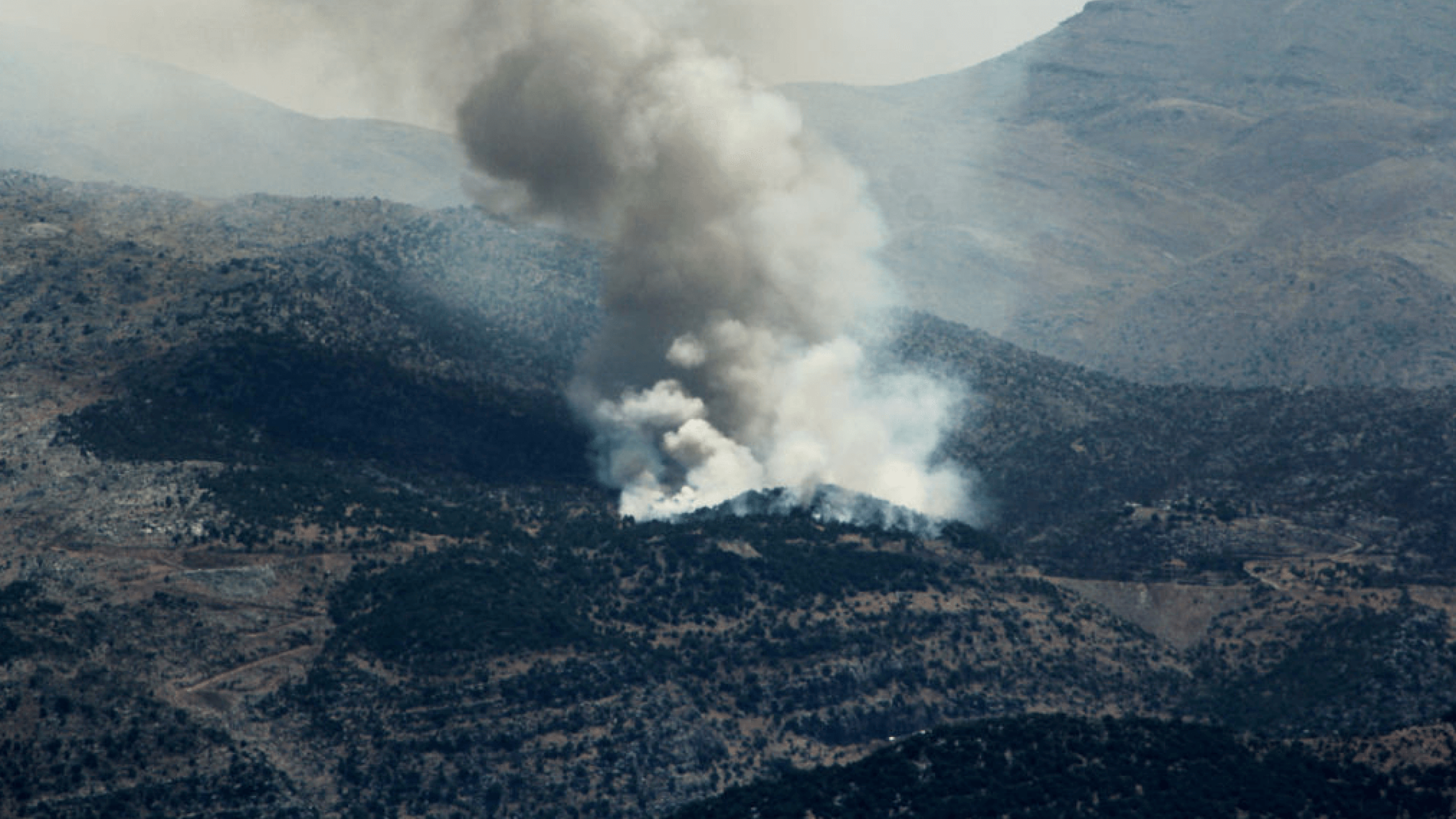Hezbollah hits northern Israel with heaviest barrage since Oct. 7
Even diehard residents who refuse to evacuate since October say they’re rattled by Thursday’s strikes

Smoke billows from forest fires near the southern Lebanese village of Shebaa on Thursday. The cross-border conflict with nearby Israel has escalated significantly since Israel killed a high-level Hezbollah commander on Wednesday. Photo by RABIH DAHER/AFP via Getty Images
Israel’s mostly evacuated communities near its border with Lebanon were battered Thursday morning by what locals called the most severe attacks since Hamas invaded Israel’s south from Gaza on Oct 7. The Israeli military said the Lebanese Shiite militia Hezbollah sent about 200 rockets and 20 drones carrying explosives into Israel on Thursday, the day after Israel assassinated the Hezbollah commander Mohammed Naima Nasser.
“This is the worst sequence of bombing we’ve had,” said Dean Sweetland, who has lived for eight years on Kibbutz Malkiya, which sits meters from the Lebanon border. “Nothing even comes close to what’s happened here in the last two days.”
The Israel Defense Forces said that its air defenses and fighter jets intercepted “a number” of the projectiles and that its forces had struck Hezbollah military structures in the areas of Ramyeh and Houla in southern Lebanon.
The IDF did not report any injuries from the attack and had not released any estimates of damages to property as of 3:40 p.m.
Sweetland, a 53-year-old landscaper, said he was sitting on his back patio high atop a mountain facing east on Wednesday afternoon, a few hours after Nasser’s killing, and saw scores of missiles flying overhead, then smoke from where many landed at various points across the Upper Galilee. “It was a crazy couple of hours,” he said.
At about 10 a.m. Thursday, Sweetland said he again heard the “whish, whish, whishing” of missiles overhead, then sirens blaring and red alert alarms buzzing on his phone steadily for almost two hours. Video he shot on his phone shows explosions on farms and other kibbutzim throughout the region.
“It wouldn’t stop, like one boom after the other, boom, boom, boom, and it hasn’t stopped yet,” he said at noon Israel time Thursday after emerging from a bomb shelter. “This conflict has entered another level this week and there’s no sign of it stopping.”
Chris Coyle, 51 and an immigrant from Scotland, said he spent a good part of Thursday morning under his kitchen table wearing a helmet and flak jacket. The afternoon before, he’d been in a Kiryat Shmona park feeding the local nutria – a type of water rat that can grow to the size of a dog – when the rockets started exploding, and took cover under a eucalyptus tree.
“This has gotten to be a daily occurrence for us who stayed behind,” Coyle said. “We just want our lives back.”
Eliezer Haziza, a farmer, was at morning minyan in a Kiryat Shmona synagogue when Thursday’s barrage started. The group took cover in a bunker under a Chabad House.
“They got really mad today,” he said of Hezbollah. “This is our reality here.”
All three men plan said they nonetheless planned to stay in their homes in northern Israel, and that they expected the fighting with Hezbollah to get worse before it stops.
“This is just the beginning, which is why the world should start paying attention,” Coyle said.
“If I need to die, I will die,” said Haziza. “So be it.”
A message from our CEO & publisher Rachel Fishman Feddersen
I hope you appreciated this article. Before you go, I’d like to ask you to please support the Forward’s award-winning, nonprofit journalism during this critical time.
We’ve set a goal to raise $260,000 by December 31. That’s an ambitious goal, but one that will give us the resources we need to invest in the high quality news, opinion, analysis and cultural coverage that isn’t available anywhere else.
If you feel inspired to make an impact, now is the time to give something back. Join us as a member at your most generous level.
— Rachel Fishman Feddersen, Publisher and CEO